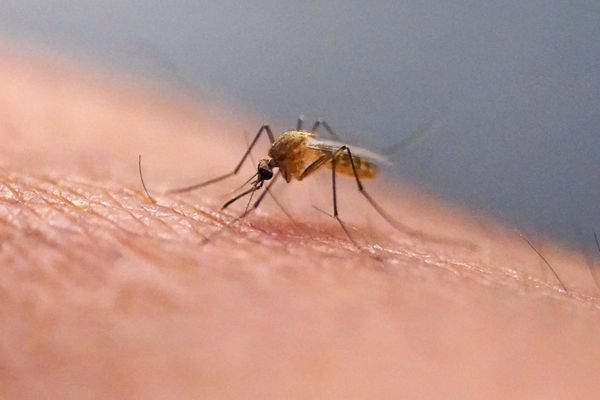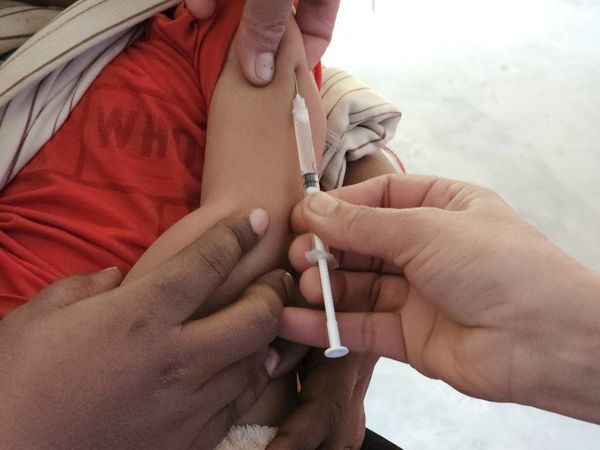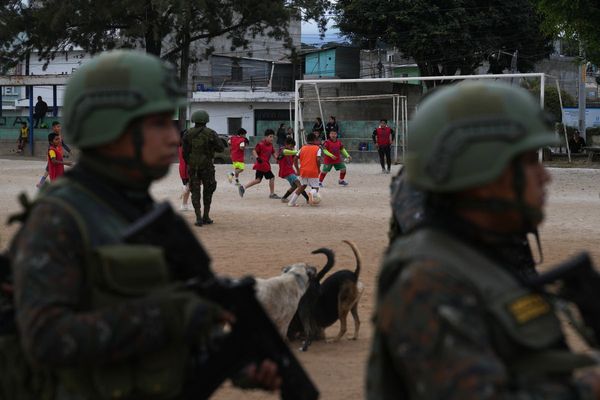
The Philippines’ representative in Taiwan expressed his regret over Kaohsiung Mayor Han Kuo-yu (韓國瑜) using the derogatory term “Marias” to refer to Filipino workers in a Saturday letter, as many Filipinos in Taiwan expressed their dissatisfaction with the mayor’s attempt to clarify his remarks.
“We particularly take exception to your use of the term ‘Marias’ in reference to our citizens, a terminology that has earned negative undertones when used to refer to foreign workers,” wrote Angelito Banayo, Chairman of the Manila Economic and Cultural Office (MECO) in Taipei.
Han’s comments sparked an uproar when he apparently questioned whether society will accept “Marias” – a derogatory term for Southeast Asians – becoming teachers. They came during a particularly abhorrent week for the rights of migrant workers and international students in Taiwan, as two universities were tied to allegations of mistreating South and Southeast Asian students. Taiwan’s National Immigration Agency (NIA) also admitted that detainees, many of whom are overstaying Southeast Asian migrant workers, are expected to pay for their own food in apparent violation of international standards for humane detention.

Screenshot from a NIA video promoting a voluntary departure program for overstaying foreigners who turn themselves in to authorities.
Read More: In Taiwan, Southeast Asian Migrant Detainees Must Pay for Their Own Food
The Chinese-language Liberty Times quoted Banayo as saying his office would “uphold and protect [foreign workers’] dignity, sacrifice and contribution to national development from impetuous and undeserved labeling.”
Han attempted to clarify his comments on Thursday after making them during a Wednesday conference, saying his use of the term was a “metaphor” and was intended to address the difficulty he would have in convincing Taiwanese parents to accept the promotion of Filipino English teachers, rather than teachers from countries such as the United States, United Kingdom and Australia.
In his letter, Banayo defended the Philippines’ potential as a source of English-language teachers. Taiwan recently began offering a visa aimed at skilled workers, allowing job seekers from the Philippines and other target countries of the New Southbound Policy to seek employment outside of low-paying sectors such as factory, caregiver and fishery jobs.
One Filipino commenter on Facebook noted that the Philippines ranked 14th in EF’s 2018 English Proficiency Index, 34 spots ahead of Taiwan, which ranked 48th.
The incident called attention to Taiwan’s long history of discrimination against South and Southeast Asian migrant workers. The term “Maria” has been used for decades as a racist remark directed at people with darker skin.
When Taiwan’s Ministry of Foreign Affairs (MOFA) published a video in December proclaiming “Taiwan Is the Friendliest Country,” the Facebook comment section was bombarded with testimonies from Southeast Asians sharing experiences of discrimination, such as witnessing Taiwanese not want to sit next to them on public transportation.
MECO, the Philippines’ de facto representative office in Taiwan, has been criticized at times by migrant workers’ rights groups alleging the office has not rapidly responded to complaints made by workers against their employers and third-party brokers.
The office has pledged to assist Filipino students allegedly victimized by a work scam at Taiwan’s Yu Da University of Science and Technology in Miaoli. “We are hoping that this is just an isolated case in an otherwise noble and efficient program of the local government to promote people-to-people exchange between Taiwan and the Philippines,” Banayo said in a statement.
The scam does not appear to be isolated, however. Sri Lankan and Indonesian students at other universities made similar allegations in November and December, respectively. Last Wednesday, an advertisement from Tungnan University in New Taipei circulated online in which the school touted to companies its South and Southeast Asian students’ willingness to do “taxing, filthy, dangerous shift work.”

When President Tsai Ing-wen’s (蔡英文) signature New Southbound Policy was implemented in 2017, observers noted that it lacked protections for migrant workers. Others noted that its plans to develop closer ties with South and Southeast Asian states did not include human rights measures. This led to human rights advocates criticizing Taiwan’s decision in July 2018 to deport a Filipino drug suspect to his home country, where he may face arbitrary torture or extrajudicial killing.
Migrant workers continue to experience taxing work conditions and report allegations of underpayment, arbitrary fees charged by third-party brokers, sexual harassment and physical abuse in factories, caregiver positions, and Taiwan’s embattled fishing industry.
The government plans to expand its people-to-people exchanges with New Southbound countries in the future. Whether Taiwan’s roughly 700,000 migrant workers begin to report improvements in their work conditions remains to be seen.
Read Next: Taiwan's High Seas Fishing Vessels Lost 11 Migrant Fishermen in February
If you enjoyed this article and want to receive more like it in your news feed, please be sure to like our Facebook page below.







